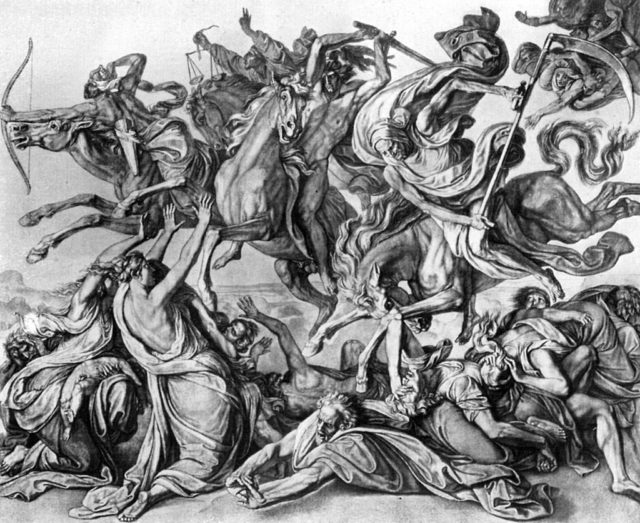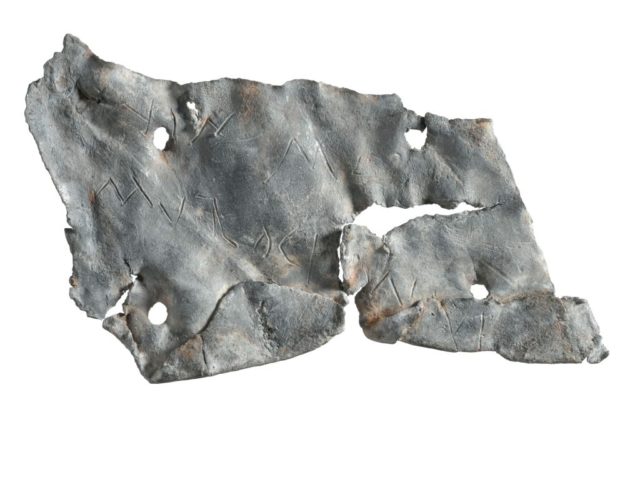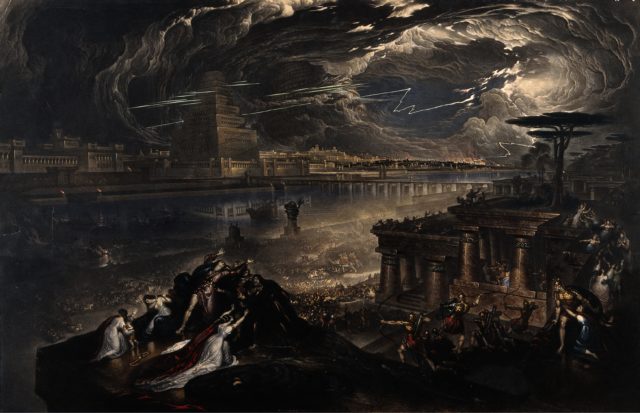The Book of Revelation is one of the quintessential texts of the Bible, detailing the Apocalyptic prophecy as received by the author. Within the vision are the Four Horsemen – conquest, war, famine, and death – who bring with them the Last Judgement and the end of days. Yet a research team analyzing the text has drawn a much different conclusion about the wording. The Book of Revelation may be full of ancient curses to use against your enemies.
Visions of the Apocalypse
Originally written sometime around the first century, the Book of Revelation is often considered the work of, simply, “John.” Although further analysis of the text has led scholars to believe that it was actually a compilation of pieces written by different individuals. Nonetheless, John of Patmos, named after the location where the work was supposedly written, is credited for this concluding segment of the New Testament.

As the only apocalyptic work in the Bible, Revelation was made up of two segments. The first focused on the seven letters written to the Christian churches of Asia Minor, while the second focused on the coming Apocalypse and visions of the future. These events are not only interpreted in an abstract and allegorical way but are often considered a written response to the Roman persecution of Christians.
Revenge of biblical proportions
Dr. Michael Hölscher and his team of researchers, however, have another interpretation. They believe that the visions and declarations included in Revelation might have been more than just Apocalyptic predictions, but could have been used to curse those who had wronged you. They are conducting their project, “Disenchanted Rituals. Traces of the Curse Tablets and Their Function in the Revelation of John,” at the Johannes Gutenberg University Mainz.

The basis for their work lies in their belief that the Bible as a whole contains numerous examples of ‘curse language,’ once commonly found on Roman tablets. Rather than focusing on the entire text, they have instead turned their attention to Revelation. There, they were able to easily identify this same type of phrasing which “may well have been an indirect expression of the need for segregation and the attempt at self-preservation of an often threatened early Christian community.”
Curse tablets
Curse tablets were used surprisingly commonly in ancient Rome. These were a way to ask the gods, or different otherworldly beings, to perform an action that was outlined in writing on a thin sheet of lead. The intended outcome of the curse would determine where the sheet was placed. Generally, they were rolled or folded and placed below ground, or they were nailed to a wall.

The text that was written varied between creators. Sometimes the name of the intended god was listed, while other times all that was etched was name of the intended curse recipient. In the case of the latter, the person creating the tablet would often write what they wanted to be done to the cursed. Part of the ritual of curse tablets was the act of placing them. Although this was considered by Roman law to be black magic, it was still readily performed.
‘With violence shall that great city Babylon be thrown down’
It is with this in mind that the team was able to look through Revelation to find phrases that were similar to those of commonly used curses. One particular statement that could be read as a curse ritual was when an angel throws a stone into the sea, uttering the words, “Thus with violence shall that great city Babylon be thrown down, and shall be found no more at all.”

The researchers also added historical context to the writing, as Babylon was a pseudonym for Rome. Christians were at odds with this empire when Revelation was written, so it makes sense that a curse against their adversaries was included.
More from us: All of the Dead Sea Scrolls at the Museum of the Bible Proved to be Fake
Full of emphatic and grandiose declarations, “It is possible that those who read or listened to the words of the Apocalypse of John could readily have seen whole passages, single phrases, or concepts in the light of curse spells.”
